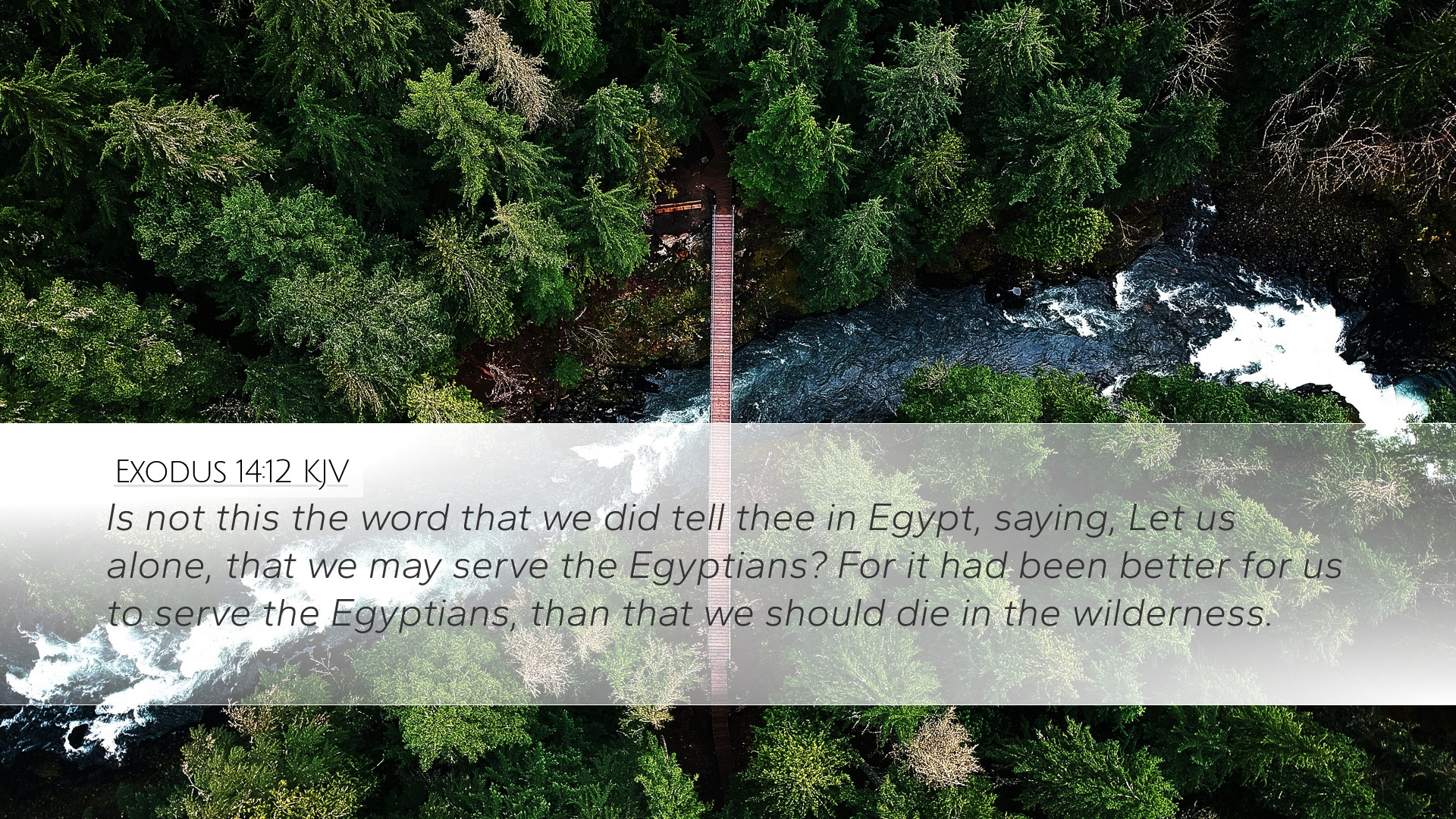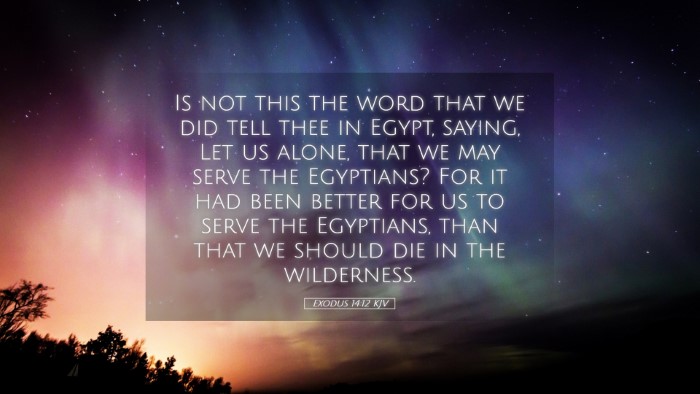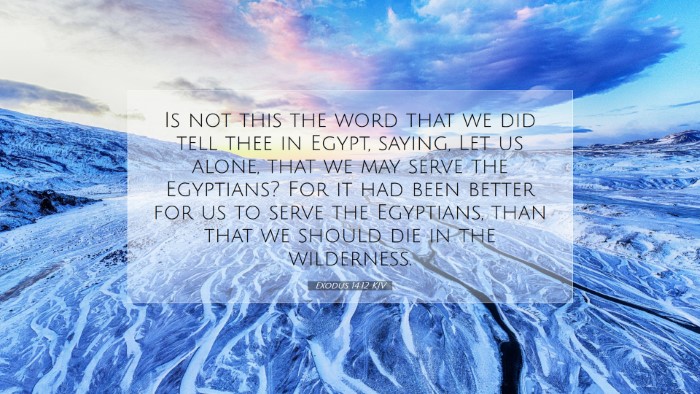Exodus 14:12 Commentary
Bible Verse: "Is not this the word that we did tell thee in Egypt, saying, Let us alone, that we may serve the Egyptians? For it had been better for us to serve the Egyptians, than that we should die in the wilderness."
Contextual Background
Exodus 14 recounts the pivotal moment in Israel's history when they faced the formidable challenge of crossing the Red Sea. After being freed from Egyptian bondage, the Israelites found themselves trapped between Pharaoh's approaching army and the sea. This situation catalyzed fear and doubt among the people as they cried out against Moses, their leader.
The Israelites' Plea
In Exodus 14:12, the Israelites expressed their grief and regret about their escape from Egypt. They longed for the security of slavery over the uncertainty of freedom. This sentiment is palpable and resonates deeply with human nature—our tendency to gravitate towards familiarity, even when it comes at a high cost.
Reflections from Commentators
-
Matthew Henry:
Henry points out that the Israelites’ desire to return to Egypt demonstrates a lack of faith in God's deliverance. He underscores how easy it is to cry out against our leaders when we sense danger, highlighting the importance of staying steadfast in faith even during trials. His commentary suggests that the fear of the unknown can often overwhelm our spiritual clarity.
-
Albert Barnes:
Barnes emphasizes the irony in the Israelites' complaint. They had prayed for deliverance from their oppressors, yet when faced with peril, they expressed a preference for the very bondage they sought to escape. This reflects a common human mindset—avoiding risk in favor of perceived safety—even when that safety is a false comfort. He notes that their reaction serves as a lesson about the challenges of faith.
-
Adam Clarke:
Clarke elaborates on the implications of the Israelites’ words. He interprets their longing to remain in Egypt as a manifestation of their spiritual blindness and immediate despair, which dulls their capacity to trust in God’s promises. Clarke argues that this choice encapsulates the struggle that believers face between the immediate visible circumstances and the faith in what God has promised.
Theological Insights
The lamentation of the Israelites presents an opportunity to explore broader theological themes.
-
The nature of faith: Faith often requires stepping into the unknown, trusting in divine providence. The Israelites’ reluctance mirrors a common struggle within the faith community—balancing fear with trust in God's promises.
-
Deliverance and redemption: The verse serves to highlight God’s redemptive plan. While the Israelites focused on their immediate struggles rather than the assurance of God’s deliverance, it teaches about the importance of looking towards the ultimate victory God has in store.
-
The consequences of doubt: Their doubt not only illustrated their fear but also hindered their ability to see the unfolding of God's plan, which reveals the serious nature of having a floundering faith in times of difficulty.
Application for Today's Believers
The sentiments expressed in Exodus 14:12 are not antiquated; they resonate with contemporary believers who may find themselves facing daunting circumstances.
-
Embracing discomfort: Modern Christians are called to confront their fears and doubts, to embrace the discomfort of faith which allows for growth and a deeper reliance on God.
-
Encouragement to grow in faith: Just as the Israelites encountered tremendous challenges, believers today are prompted to persevere in their faith journey, trusting God’s leading even when their situation appears dire.
-
Reflective practices: It becomes essential to establish practices that foster reliance on God's will, such as prayer, community support, and scriptural meditation to prepare oneself spiritually for unforeseen challenges.
Conclusion
Exodus 14:12 serves as a stark reminder of the human condition—torn between the known and the unknown, the familiar and the faithful. By delving into the sincere fears of the Israelites, we can glean insight into our struggles with faith. The commentaries of Henry, Barnes, and Clarke collectively urge us to transcend our fears, anchoring our trust in God's sovereign plan. As we navigate our own wilderness experiences, may we find strength in remembering that God remains faithful, even when we falter.


